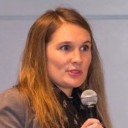Trying to get global consensus on anything is nearly impossible. But in collaboration with a dynamic cohort of individuals and organizations, we’ve managed to develop a new manifesto with respect to the structure and sharing of data about global philanthropy that is valued across contexts.
Meet the new Global Philanthropy Data Charter.
Philanthropy, and more broadly, civil society, play a large and increasingly visible role in solving complex societal issues around the globe. Over the last twenty years, as private wealth in countries around the world has exploded, we’ve seen a significant increase in giving by institutions and individuals.
At the same time, technology adoption and economic populism have emerged from the shadows while foreign aid to the least developed countries has declined.
Established in 2000, the Millennium Development Goals paved the way, in 2015, for the multi-stakeholder Sustainable Development Goals. Each step in this evolution was guided by data.
Good data? Not always. But in our rapidly changing world, everyone must tell their own story — or risk having it told for them.
The good news? Philanthropy has had to become more transparent, more accountable, and more effective. Rather than siloed efforts, maximizing impact based on smart giving and shared learning has become a collective world-wide aspiration.
But while data and knowledge are everywhere, reliable data on philanthropy is lacking in most countries, and globally comparable data is virtually nonexistent.
Given the differences among foundations and cultures of giving within a given country and across borders, gathering local and global data on philanthropy is no small task.
And when it comes to generating, managing, and using data, countries and organizations have different needs, along with differing capacities to meet those needs, while ownership and intellectual property issues pose even more of a challenge.
We hear you: Data is hard! Data is abstract! Data is everywhere! What is data? What type of data are we even talking about? Is data even that important?! In answer to these questions, we now have:
- a statement of values and principles that can serve as a guiding framework for the collection and use of philanthropic data;
- a better idea of who the stakeholders in the data ecosystem are as well as their needs; and
- a series of steps designed to achieve the goal of ‘good data for greater impact’.
Over the last two years, we worked with more than forty practitioners from over twenty countries to really understand what people like you need in order to create and use data and knowledge in your day-to-day work, whether it’s telling your organization’s story, developing new strategies, or advocating for your work.
You need data to tell others what you are working on (and where), what you are funding (or need funding for), the impact you are creating, how your work benefits the population you have targeted, what you have learned, who your partners are — data that helps you showcase why and how your organization is a gamechanger!
It all feeds a broader story, too, about how your efforts are part of a global sector-wide contribution to development, and how your town, city, country, and region might partner to achieve even greater things.
The Global Philanthropy Data Charter is already being put into action in countries such as Pakistan, South Africa, and Kenya and in regions like the Middle East and North Africa. (Yes, even in our office in New York. We’re all part of the same ecosystem.)
And you can be a data aficionado, too.
Use the charter as a roadmap to help you build the capacity of your organization, to tell your story and control your narrative, and to gain the visibility and credibility you’ve worked so hard for.
We believe data and knowledge are absolutely essential for civil society to achieve its potential and solve complex societal issues, and we hope you do, too.
We all need tools that make our lives a little easier and our work a lot more effective, and that’s the core purpose of the charter. But don’t take our word for it.
The GPDC is a partnership initiative of the Worldwide Initiatives for Grantmakers Support (WINGS) and Foundation Center. For more useful data and knowledge tools and resources, visit http://foundationcenter.org/gain-knowledge/our-global-work.
Lauren Bradford is Director of Global Partnerships and Larry McGill is Vice President of Knowledge Services at the Foundation Center.
This article originally appeared on the Philanthropy News Digest’s website on 25 October 2017. The original article can be found here.







Comments (0)